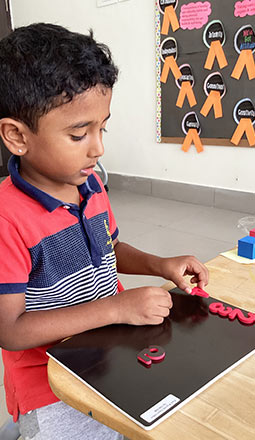“The best way to predict the future is to create it”.- Abraham Lincoln
As our children grow, we have a responsibility of being their guiding force that encourages them to reach for the stars and find their passions. We should not expect them to be anything more than the example we give. Our roles as adults are to show the children how the real world is and empower them with self-confidence to make impacts in that world. To prepare them for the future we must focus on the style of communication which children need to comprehend and execute. Sometimes while communicating we forget that children do not understand everything. It is essential for us to use language which they understand and find logical for application.
Often we adults overlook the understanding ability of our children and communicate with them through Umbrella Statements to tell them how to be, what to do etc. They are called Umbrella statements because one statement is supposed to cover a whole range of expectations. The trouble is there is no action being described, and so the expectations have no effect, just like raindrops bouncing off an umbrella. When we tell our children how to be but not what to do, it becomes as confusing as negative language. Moreover we can not expect children to do everything simply because we, as a parent/teachers, “say so.” They deserve explanations and if we do not take time to explain, they will begin to wonder about the purpose. Parents who reason with their children allow them to understand and learn in a nonjudgmental way.
How do we avoid the umbrella statement?
Use Active Language. Active language is about saying the action you want to see your child doing and make it clear for your child what your expectations are. Child will understand what to do and act accordingly without any confusion. It also makes it easier for you to correct if they make any mistakes. If there is any doubt, describe it, make your expectations clear, express your feelings, and invite your child to work on a solution with you. Be sure to include consequences. Make suggestions and offer choices. Be open to your child’s suggestions as well. Children who participate in decision making are more motivated to carry them out.
Children start comprehending the actions around them through their parents’ eyes. Our tone, body language, and every expression are absorbed by them. Motivating words and actions affect their developing self-esteem more than anything else. Praising accomplishments, however small, make them feel proud; letting them do things independently make them feel confident and capable. Loaded statements with negative messages can cause damage just as physical blows do.
Choose your words carefully and be compassionate. Let your child know that everyone makes mistakes and that you still love them, even when you do not agree with their behaviour.








